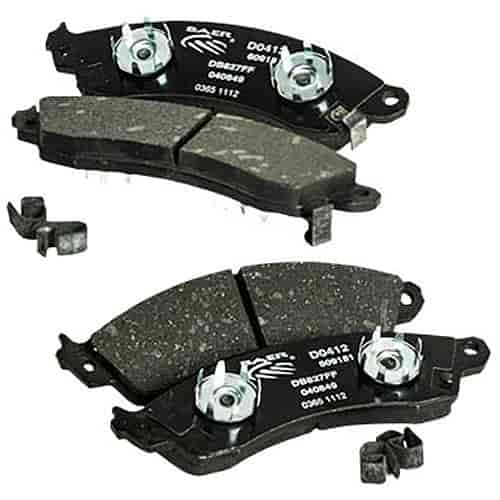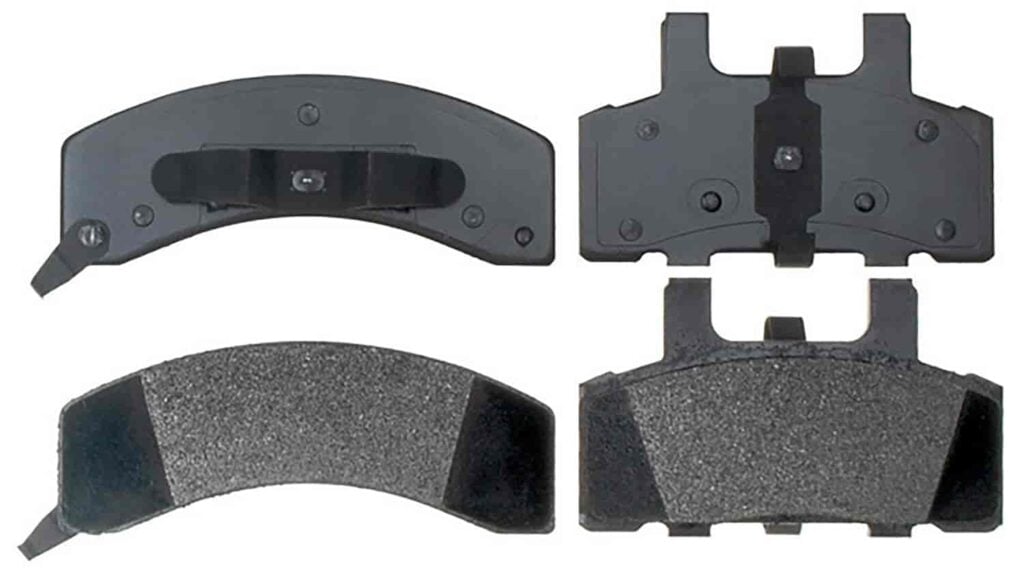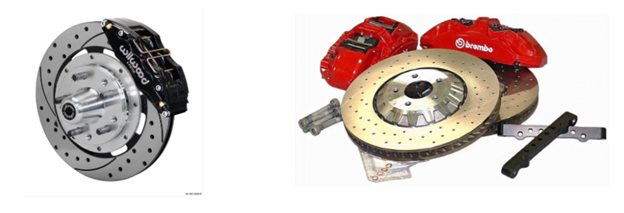Sign up now to join the JEGS email newsletter and be the first to learn about new products, special deals and e-mail only offers!


Does your vehicle make squealing sounds when pressing the brake pedal? If so, there may be an issue with your brake pads, like thinning, stuck debris, or poor lubrication. Still, it’s also possible that the pads are perfectly fine and the sounds resolve on their own.
Instead of waiting around to find out, your best bet is to diagnose the cause and then work on a solution, which is especially true considering it involves a vital safety component.
Thankfully, this article covers everything to know about squealing brake pads. We’ll review the causes of these sounds and then walk you through potential solutions. Lastly, we’ll answer one of the most commonly asked questions: whether or not it’s safe to drive with squealing brakes.
Let’s get started.

Sign up now to join the JEGS email newsletter and be the first to learn about new products, special deals and e-mail only offers!

One of the most proactive ways to prevent squealing brakes is through regular inspections and diligent maintenance. You can catch potential issues before they escalate by checking your pads every six months or so for wear, rust, and debris.
Equally important is the installation process, as incorrectly installed brake components can easily become a source of noise.
Always ensure that either you or a professional adhere strictly to factory installation guidelines, as the lifespan and performance of your brakes depend on their initial setup and ongoing care.
If you've been using the same type of brake pads for a while, it might be time for an upgrade.
Ceramic pads, for example, are quieter than semi-metallics and are a great choice for noise reduction. Organic pads are also less audible than semi-metallics but may not perform as well.
Once you’ve decided on your new pads, be sure to properly break them in for optimal performance and noise reduction. Known as the "bedding" process, it involves making several controlled stops to generate heat and evenly distribute pad material onto the rotors.
Learn more about brake pad types in our performance comparison.

Another possible solution for squealing brakes is lubricating the system's components, especially where parts move or slide, such as pins, caliper slides, bushings, pad contact points, and parking brake cables and linkages.
Using specialized brake lubricant can decrease the potential for metal-to-metal contact, counteracting any squealing noises while also prolonging the longevity of your braking system.
Additionally, the hardware elements in the braking system, such as shims, clips, and springs, degrade over time due to use and exposure. If these components become worn or corroded, they can misalign, prompting squealing noises.
With age, brake rotors can develop uneven surfaces or accumulate deposits, which can cause squealing sounds when in contact with the pads. You can lessen the noise by having your rotors resurfaced, which basically means grinding down their surface until it’s smooth.
Moreover, dust and grime can accumulate on brake pads and rotors. Cleaning them regularly (at least every inspection) can reduce noise and also enhance their efficiency.
Just make sure to use brake cleaner designed for brake systems to avoid potential damage. A thorough cleaning and resurfacing can renew your braking system’s performance and lessen the likelihood of any squeals.
As mentioned earlier, your braking habits also cause squealing sounds. Abrupt stops can exert undue stress on the brake system, leading to faster wear and increased noise. Modulating your braking style by gradually decelerating can lessen the negative effects.
Additionally, improper wheel alignment doesn't just impact tire wear; it also affects your brake pads. Misalignment can lead to uneven pad wear, causing irregular contact with rotors and potential squealing sounds.
Regular alignment checks (at least once a year) help ensure even pad wear and optimal braking action.
Ultimately, whether or not you should drive with squealing brakes hinges on the underlying cause of the noise.
Benign factors like rust from a recent downpour or new pads adjusting to rotors are likely safe for short trips. However, consistent or loud squeals can indicate issues like worn pads, misalignment, or trapped debris.
Driving briefly with mild squeals may not put you in immediate danger, but prolonged neglect can hasten wear, damage brake parts, and reduce safety. If squealing pairs with altered pedal feel, reduced stopping ability, or grinding sounds, avoid driving and seek a mechanic's advice promptly.
You made it to the end! Thanks for reading our guide on squealing brakes; we hope you enjoyed it.
For a massive selection of quality braking system components, consider JEGS, a leading supplier of performance automotive parts and accessories.
Still have questions? Contact our team today.




